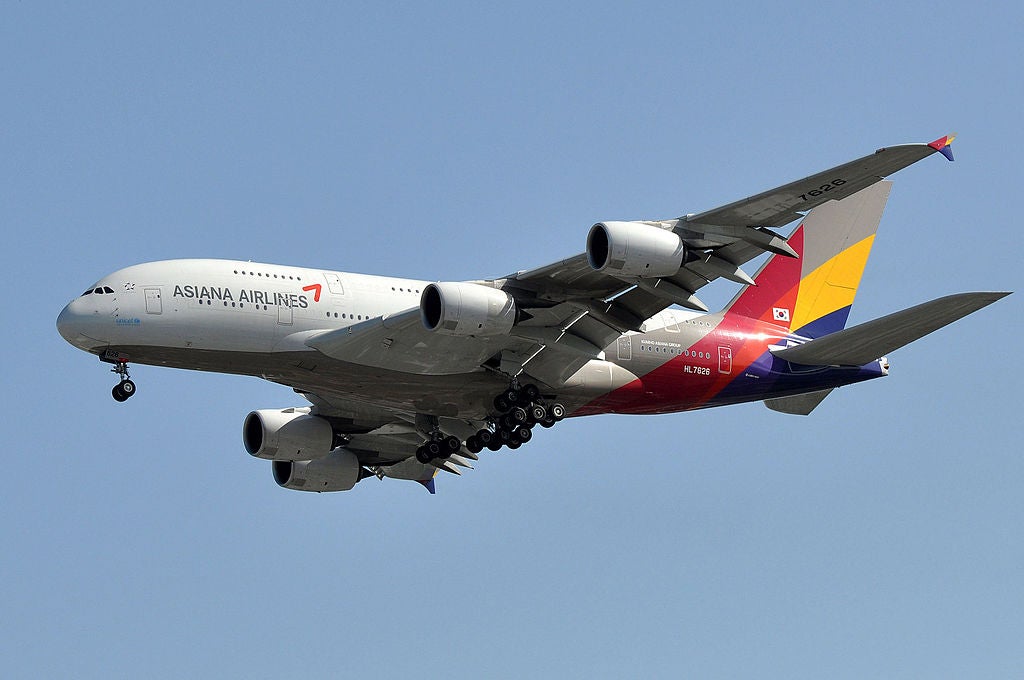This website uses cookies so that we can provide you with the best user experience possible. Cookie information is stored in your browser and performs functions such as recognising you when you return to our website and helping our team to understand which sections of the website you find most interesting and useful.

A South Korean airline has been forced to operate empty super-jumbo jet flights during the coronavirus pandemic.
Asiana Airlines flew around 26 Airbus A380 journeys in May, with no one onboard but the pilots and crew.
The aircraft, which can seat up to 853 passengers, was seen flying in a loop from Seoul Incheon Airport before returning 20 minutes later, according to traveller.com.au.
The flights were necessary to keep the airline’s pilots fully certified to operate its fleet of six A380s.
Aviation regulations stipulate that commercial pilots must prove their proficiency for particular aircraft every 90 days, and Asiana wanted to ensure pilots were ready to start flying again as soon as global travel restrictions eased.
Under normal circumstances, the pilots could have kept their certified status by flying a simulator of the world’s largest passenger jet, instead of the real thing.
However, the nearest A380 simulator to South Korea is located in Thailand.
With border closures and travel restrictions in place, Asiana pilots could only complete the required flights using the carrier’s actual planes.
To remain certified, pilots must complete not just one flight per aircraft model per 90 days, but a minimum of three take-offs, approaches and landings, including flying under “Instrument Flight Rules (IFR)”, which is necessary at night or when visibility is restricted.
In some countries, regulators have relaxed the 90-day rule in light of the large-scale grounding of flights caused by the pandemic.
For example, the US’s Federal Aviation Administration (FAA) has said the normal timeframe for proficiency checks, medical checks, flight review and instrument currency requirements has been extended by three months.
Those whose checks expired between March and June 2020 have another 90 days to complete them.



 Africana55 Radio
Africana55 Radio 

